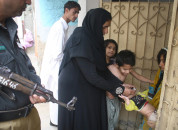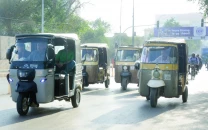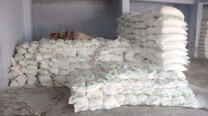Population count: Politics seen impeding population census
"The census can help us understand who is living where and under what conditions," Analyst Raza Ali

Peter Jacob, executive director of the Centre for Social Justice, said the inordinate delays in any task meant it had lost its importance. CREATIVE COMMONS
Addressing the seminar, analyst Raza Ali said, “While no province is willing to organise a census, the fact remains that the needs of the people can truly be assessed only on the basis of demographic information.”
“The Punjab wants to protect its share from the centre. Balochistan believes that by having a large number of Pashtuns documented as its residents, the importance of Baloch citizens will diminish. Sindh is concerned about the stark divide between the urban and rural populations and differences between the Urdu speakers and non-Urdu speakers. Khyber Pakhtunkhawa government is not willing to hold the census a because it fears division between the Pakhtun and Hazara population,” he said.
Highlighting the importance of the census, he said, “It can help us understand who is living where and under what conditions. This knowledge can be used to form policies which will address the problems of the population.”
“This information is already available with various institutions but it is not public. The census can provide easily accessible statistics,” he said.
The National Database and Registration Authority (NADRA) also has the population data, he said. However, information analysed by the authority is not public.
“The census is necessary but the country won’t cease to function if it is not held,” he said.
Human Rights Commission of Pakistan secretary general IA Rehman said political concerns had held up the census.
“There is population movement across all provinces. The Punjab is avoiding the census because it fears losing its share from the centre to Balochsitan,” he said.
Rehman said it was unfortunate that Pakistan Army was the only institution which could organise a credible census.
Kashif Ali, deputy director at the Ministry of Human Rights, said an early census was necessary to ascertain shares of religious minorities.
“Before 1971, the ratio of population of majority and minorities in Pakistan was 77 and 23 per cent. In the 1998 census, the ratio stood at 96 and 4 per cent,” he said.
He said there had been scores of forced conversions in Sindh over the last few years.
“It is important that the census be held so that we can determine the Hindu population,” he said. He said the census would also reveal how many Ahmadis had left the country.
Shazia Ahmed said a census was needed to understand whether state policies were benefitting the people. “We cannot know how many people benefit from the Metro Bus in Lahore if we do not understand the city’s demographics.”
Peter Jacob, executive director of the Centre for Social Justice, said the inordinate delays in any task meant it had lost its importance.
“The delay in handing over power to local governments is a glaring example of this,” he said. He said the population census was imperative for economic and social planning and necessary for security and safety of the country.
Published in The Express Tribune, August 5th, 2016.



















COMMENTS
Comments are moderated and generally will be posted if they are on-topic and not abusive.
For more information, please see our Comments FAQ